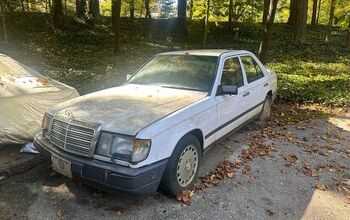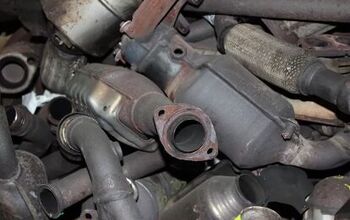Japanese Parts Paralysis: The Shiny Paint Is Leaving The Building

Remember the first auto part that had been in short supply after the March 11 tsunami? It was car paint. Certain car paint that uses a shiny pigment called Xirallic, to be exact. That will also be one of the first Japanese parts that will move elsewhere as a result of the disaster. Germany’s Merck said today it will shift production of Xirallic pigments from Japan to Germany.
The plant where Xirallic is made is in Onahama, a coastal town not far from the Fukushima nuclear reactor. Tsunami damage and exposure to radiation made Merck stop production in March. Operations at Onahama resumed two days ago. Regular production output is expected by June. It will continue until Merck has readied another plant in Germany.
Merck’s Onahama plant is the only plant that makes Xirallic. The shutdown of the plant affected many of the world’s auto makers, including Ford., Chrysler, Volkswagen, BMW, Toyota and GM. As a result, new cars the world over became a bit less shinier, dealers and carmakers lost markups.
According to The Nikkei [sub], timing and location for the new site have yet to be determined. “Our top priority is to ensure as soon as possible an uninterrupted supply of Xirallic pigments to our customers around the world,” said Peter Halas, Head of the Pigments and Cosmetics unit at Merck. These parameter no longer fit a plant 35 miles from the Fukushima reactor, and in a town, where tsunami waves as tall as buildings were observed.
Merck is probably not the only company that is thinking: “Let’s get production up as quickly as possible. And then let’s start looking for another location.”

Bertel Schmitt comes back to journalism after taking a 35 year break in advertising and marketing. He ran and owned advertising agencies in Duesseldorf, Germany, and New York City. Volkswagen A.G. was Bertel's most important corporate account. Schmitt's advertising and marketing career touched many corners of the industry with a special focus on automotive products and services. Since 2004, he lives in Japan and China with his wife <a href="http://www.tomokoandbertel.com"> Tomoko </a>. Bertel Schmitt is a founding board member of the <a href="http://www.offshoresuperseries.com"> Offshore Super Series </a>, an American offshore powerboat racing organization. He is co-owner of the racing team Typhoon.
More by Bertel Schmitt

































Comments
Join the conversation
Why did a German Company have its only factory for a product in Japan?
This brings up the second question, will the production, and the jobs related to it, ever return to Japan post crisis. I suspect that many of these jobs that get off shored (or in this case return to shore) will not come back to Japan and there will be a lasting impact to Japan.
So Merck plans to fix the factory and then close it. Okay..... So production will be moving to, what, an ultra-secret bunker buried deep inside the Swiss Alps? Or a compound in the middle of a plain with a 5-mile-radius security perimeter? Merck, you could have looked at a map 10 years ago and seen that the ocean was next to Onahama. It's been there, trust me!